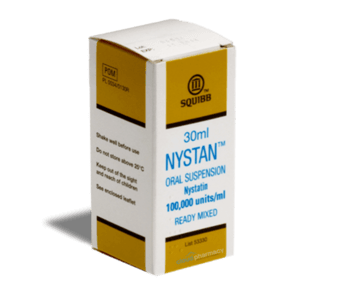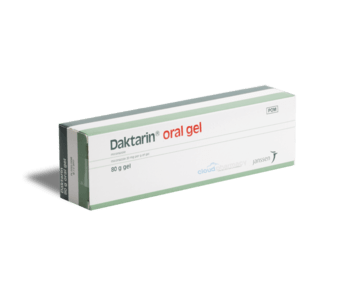Oral Thrush

More information
Introduction
Oral thrush happens when a yeast infection develops inside your mouth. It’s also known as oral candidiasis, oropharyngeal candidiasis, or simply thrush.
Oral thrush is not contagious in the same way a cold is. However, it can be caught through direct contact with the infection, such as kissing. The condition is more likely to affect babies, children, the elderly and those with an underlying condition that makes them more prone to the infection. These conditions include; diabetes, hypothyroidism (underactive thyroid), HIV, and iron/vitamin B12 deficiencies. Oral thrush is not usually serious and can be successfully treated with a range of antifungal medicines.
Treatments
More information
Once an online consultation has been been approved by our medical team, our pharmacy will safely prepare and ship your treatment to you in discreet packaging using Royal Mail or DPD.
What is Oral Thrush?
Oral thrush is a common fungal infection that affects the mouth. It is often referred to as oral candidiasis because it is caused by the group of yeasts known as Candida. Small numbers of this yeast can be found in the mouth and in the digestive system however certain triggers can cause the fungus to multiply and result in oral thrush.
Some triggers include:
- Use of antibiotics
- Inhaled Corticosteroids (steroid inhalers in treatment of Asthma)
- Poorly fitting dentures
- Poor oral hygiene
Is Oral Thrush Contagious?
Oral thrush is non-contagious infection found in and around the mouth cavity which can include the tongue, inner cheek, lips and gums. It is most frequently found in adults with a weakened immune system or in babes and young children.
In certain circumstances this can be passed on when having oral contact with an infected person for example when kissing. Therefore it is advised to avoid this activity until the symptoms have cleared.
What are the most common symptoms of Oral Thrush?
The most common symptoms of oral candidiasis include:
- Redness inside the mouth
- White plaques or patches inside the mouth
- Bleeding
- Cracking of mouth corners
- Loss of taste
- Reduced ability to taste
- Strange taste in mouth
- Difficulty eating and drinking
Although oral thrush can cause discomfort, it is rarely serious if treated as soon as you notice symptoms.
How is Oral Thrush treated?
You can treat oral thrush online in the UK from Cloud Pharmacy using antifungal medication. The two treatments available are Daktarin Oral Gel and Nystatin Oral Suspension.
How do I buy treatment for Oral Thrush online?
Treatment can be provided through this online pharmacy however only if our UK registered prescriber deems it safe. The pharmacy will then dispense this medication and deliver it to you discreetly with the option of next day delivery.
Causes
Low numbers of the fungus Candida are naturally found in the mouth and digestive system of most people. They don't usually cause any problems, but can lead to oral thrush if they multiply.
There are a number of reasons why this may happen, including:
- taking a course of antibiotics, particularly over a long period or at a high dose
- taking inhaled corticosteroid medication for asthma
- wearing dentures (false teeth), particularly if they don't fit properly
- having poor oral hygiene
- having a dry mouth, either because of a medical condition or a medication you are taking
- smoking
- having chemotherapy or radiotherapy to treat cancer
Babies, young children and elderly people are at a particularly high risk of developing oral thrush, as are people with certain underlying conditions, including diabetes, an iron deficiency or vitamin B12 deficiency, an underactive thyroid (hypothyroidism) and HIV.
As most people already have Candida fungi living in their mouth, oral thrush is not contagious. This means it cannot be passed to others.
Symptoms
There are a variety of symptoms associated with oral thrush, these include:
- Plaques (white patches), which are found inside the mouth. These can usually be wiped off, leaving behind red patches that are prone to bleed.
- Redness inside the mouth and throat.
- An unpleasant taste or a loss of taste in the mouth.
- Cracks can occur on the corners of the mouth.
- A burning sensation inside the mouth.
- Pain inside the mouth.
For some sufferers, these symptoms can make eating and drinking more difficult.
What treatments are available?
Oral Candidiasis can be successfully treated with anti-fungal medicines. Typically, these medicines will be in a gel or liquid form, which allows for direct application inside of the mouth. Topical oral thrush treatments like these usually need to be applied several times daily for up to two weeks.
Cloud Pharmacy supplies the following treatments for Oral Thrush:
However, for more severe or persistent infections, tablets or capsules are also available after having consulted with your doctor. Tablet and capsule alternatives are typically taken just once daily.
FAQ
What causes Oral Thrush?
Low numbers of the fungus Candida are naturally found in the mouth and digestive system of most people. They don't usually cause any problems, but can lead to oral thrush if they multiply.
There are a number of reasons why this may happen, including:
- taking a course of antibiotics, particularly over a long period or at a high dose
- taking inhaled corticosteroid medication for asthma
- wearing dentures (false teeth), particularly if they don't fit properly
- having poor oral hygiene
- having a dry mouth, either because of a medical condition or a medication you are taking
- smoking
- having chemotherapy or radiotherapy to treat cancer
Babies, young children and elderly people are at a particularly high risk of developing oral thrush, as are people with certain underlying conditions, including diabetes, an iron deficiency or vitamin B12 deficiency, an underactive thyroid (hypothyroidism) and HIV.
As most people already have Candida fungi living in their mouth, oral thrush is not contagious. This means it cannot be passed to others.
What treatments are available?
Oral Candidiasis can be successfully treated with anti-fungal medicines. Typically, these medicines will be in a gel or liquid form, which allows for direct application inside of the mouth. Topical oral thrush treatments like these usually need to be applied several times daily for up to two weeks.
Cloud Pharmacy supplies the following treatments for Oral Thrush:
However, for more severe or persistent infections, tablets or capsules are also available after having consulted with your doctor. Tablet and capsule alternatives are typically taken just once daily.
What are the symptoms?
There are a variety of symptoms associated with oral thrush, these include:
- Plaques (white patches), which are found inside the mouth. These can usually be wiped off, leaving behind red patches that are prone to bleed.
- Redness inside the mouth and throat.
- An unpleasant taste or a loss of taste in the mouth.
- Cracks can occur on the corners of the mouth.
- A burning sensation inside the mouth.
- Pain inside the mouth.
For some sufferers, these symptoms can make eating and drinking more difficult.What is Oral Thrush?
Oral thrush is a fungal infection that affects the mouth and throat.
The infection is caused by a group of yeasts called candida. Oral thrush is sometimes referred to as oropharyngeal candidiasis. The condition will cause small white bumps to form inside the cheeks and on the tongue, which will usually cause the sufferer some level of discomfort.
Typically, oral thrush is a mild fungal infection that rarely causes complications.
Why do I have Oral Thrush?
A naturally occurring fungus called candida can be found in the mouths and digestive systems of most people. Usually this fungus doesn’t cause any harm unless their numbers multiply. When candida multiplies beyond normal levels it can lead to oral thrush.
There are a number of things that can trigger this multiplication, including:- Taking a prescribed course of antibiotics, especially in high doses or over long periods of time.
- Using inhaled corticosteroids medication for asthma.
- Having poor levels of oral hygiene.
- Being a denture wearer, especially if they are ill-fitting.
- Smoking
- Having a dry mouth, either as the result of a medical condition, or as a side-effect of medication.
- Undergoing chemo or radiotherapy.
What are the most common symptoms of Oral Thrush?
The most common symptoms of oral thrush include:
- Plaques, which are white patches or bumps in side the mouth. These patches can often be wiped off, leaving behind red areas that are prone to bleeding.
- A loss of taste in the mouth.
- An unpleasant taste in the mouth.
- A burning pain inside the mouth.
- Redness of the mouth and throat.
- Cracks appearing at the corners of the mouth.
- A difficulty in eating and drinking.
Is Oral Thrush contagious?
Oral thrush is not contagious in the same way a cold or the flu is.
However, under certain circumstances it can still be passed on. It is possible to contract oral thrush through oral contact with an infected person. Though this will depend on the strength of your immune system and whether there are other risk factors at play. For this reason it is advised to avoid oral contact, such as kissing, until the symptoms have fully resolved.
Is Oral Thrush dangerous?
Oral thrush, in most cases, isn’t dangerous. Though if left untreated it can potentially spread further into the body, which can make the condition more serious.
However, this usually only happens in severe cases, and for those with weakened immune systems.
Do I need to treat Oral Thrush?
It is recommended to seek treatment for oral thrush as the infection can make the sufferer feel very uncomfortable. If left untreated, the condition will likely persist. Plus, if the infection spreads to other areas of the body it can cause further complications.
What treatments are available for Oral Thrush?
Oral thrush can be successfully treated with topical antifungal medicines. These are typically in the form of a gel of liquid, allowing for direct application to the infected area. Topical medications, such as gels or liquids, will usually need to be used several times daily, for approximately 1-2 weeks.
Examples of topical oral thrush treatments include:
In some cases, oral antifungals may be used, which are usually administered once daily. Examples of oral preparations include:
- Fluconazole capsules
- Itraconazole capsules
When suffering from oral thrush, it can be beneficial to alter your oral care regime at home. This will include:
- Brushing teeth with a soft-bristled toothbrush, as to avoid scraping the plaques.
- Replacing your toothbrush daily, until the infection has cleared.
- Avoid using mouthwashes and sprays.
- Use a saltwater mixture for rinsing your mouth.
Do Oral Thrush treatments cause side effects?
Oral thrush medications don’t often carry side-effects, although some have been known to cause nausea, vomiting, diarrhoea and bloating.
What can I do to prevent Oral Thrush?
You can reduce the chances of contracting oral thrush by following these simple routines:
- Brush teeth at least twice daily, using a toothpaste containing fluoride.
- Floss daily, especially if you are a denture wearer, or are diabetic.
- Rinsing your mouth after meals.
- Having regular dental check-ups.
- If a denture wearer; remove, clean and soak the dentures every night. Also, ensure your dentures fit properly.
- Stop smoking.
- If you use a corticosteroid inhaler, it is important to rinse out your mouth after each use.
- If taking prescribed antibiotics, add yogurt to your diet for the duration of the course.
- If suffering from a vaginal yeast infection, ensure it is treated promptly, especially if you’re pregnant.
- Ensure any underlying condition, such as diabetes, is well controlled.
If you suffer from, or are receiving treatment for a condition that puts you at a higher risk of developing oral thrush, your doctor can recommend taking a course of prescribed antifungals to help prevent oral thrush from developing.
Guides
How it works

First...
Complete a quick eligibility check

Then...
Order your treatment

Finally.
Fast, confidential delivery to your door


















